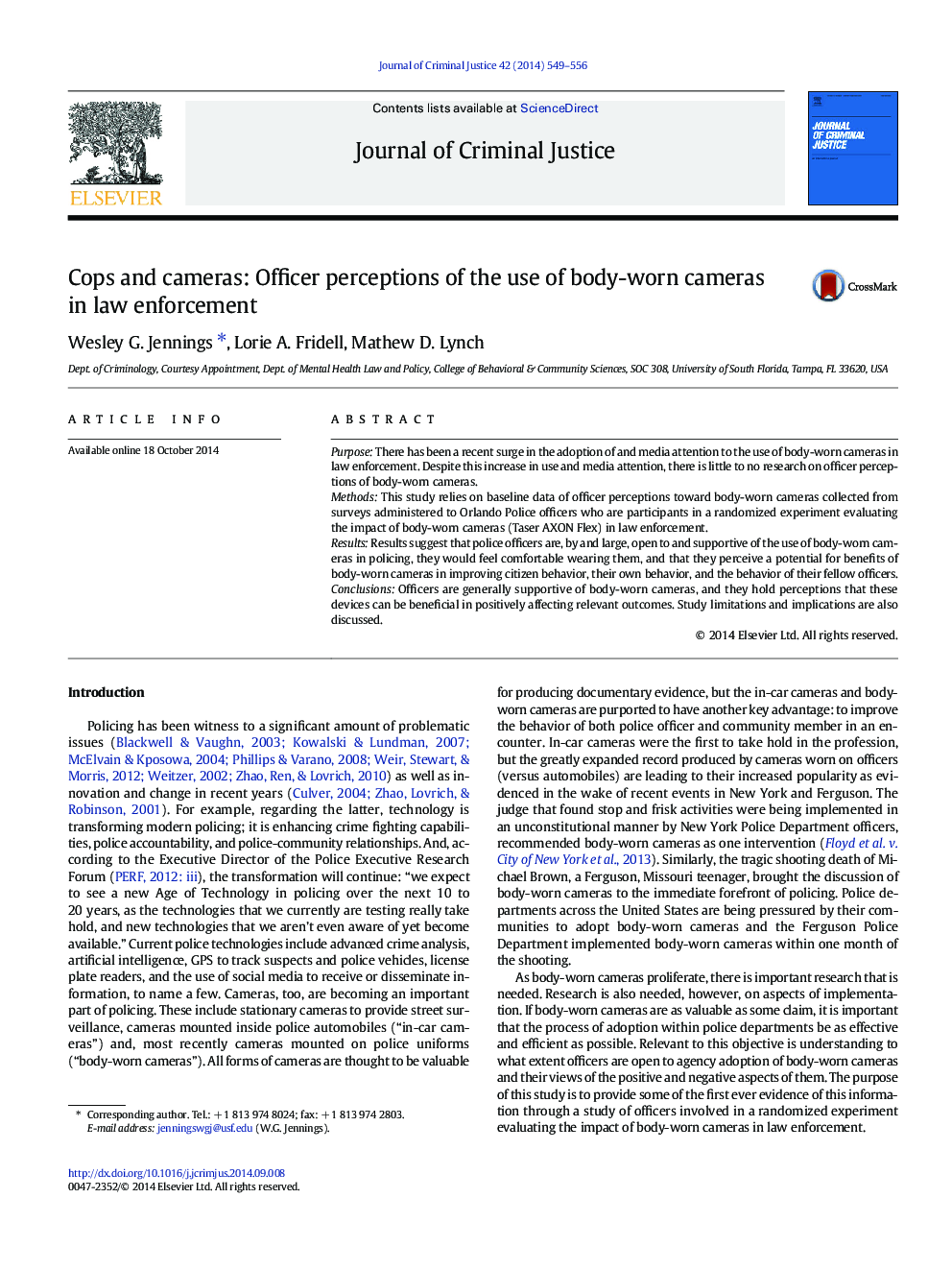| Article ID | Journal | Published Year | Pages | File Type |
|---|---|---|---|---|
| 882713 | Journal of Criminal Justice | 2014 | 8 Pages |
•Police officers are open to and supportive of the use of body-worn cameras.•Officers believe that body-worn cameras can improve citizen behavior.•Officers perceive that body-worn cameras can improve their behavior.•Officers feel that body-worn cameras can improve their fellow officers’ behavior.•Officers do not believe that body-worn cameras will impact willingness to respond.
PurposeThere has been a recent surge in the adoption of and media attention to the use of body-worn cameras in law enforcement. Despite this increase in use and media attention, there is little to no research on officer perceptions of body-worn cameras.MethodsThis study relies on baseline data of officer perceptions toward body-worn cameras collected from surveys administered to Orlando Police officers who are participants in a randomized experiment evaluating the impact of body-worn cameras (Taser AXON Flex) in law enforcement.ResultsResults suggest that police officers are, by and large, open to and supportive of the use of body-worn cameras in policing, they would feel comfortable wearing them, and that they perceive a potential for benefits of body-worn cameras in improving citizen behavior, their own behavior, and the behavior of their fellow officers.ConclusionsOfficers are generally supportive of body-worn cameras, and they hold perceptions that these devices can be beneficial in positively affecting relevant outcomes. Study limitations and implications are also discussed.
